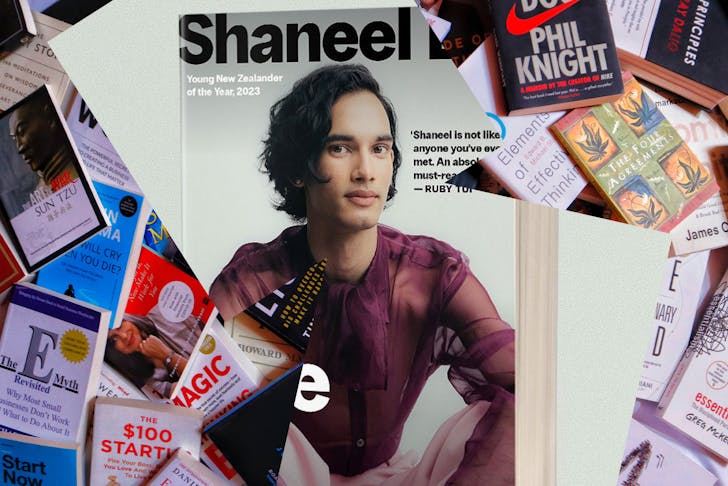Shaneel Lal is Urban List’s guest editor. Shaneel is a Fijian-New Zealand writer, LGBT rights activist and New Zealand’s first-ever trans person to win Young New Zealander Of The Year. They share lived experiences to champion inclusion and representation of the LGBT community in media and beyond.
I grew up in a small village in a close-knit community. We had no access to the internet. We had a rear-projection television and were limited to whatever played on it. It was a sheltered childhood which one could mistake for a protected and safe childhood.
Nothing outside my village existed for me. Four months after I was born, Fiji had its third coup. Fiji has a tumultuous past, with four coups and Christian extremism being its key features. Many churches supported Fiji’s third coup. The separation of the state and the church never seemed to have happened. Instead, the state was in bed with the church. Laws were designed to appease extremist Christians.
When I was growing up, it was a crime to be gay. When I started feeling that I may be different from what I’d been shown all my life, I desperately searched for what that difference could be. There was Vicky—the one openly queer person in my village. Some said she was a gay man; others said she was a transgender woman. As a kid, I didn’t know which, but I knew Vicky was overtly queer.
I looked up to Vicky as a role model. I thought my life would play out like Vicky’s life. One day on the bus from school to home, I watched the other students hurl slurs, throw rubbish and spit at Vicky. In that moment, I realised that if I accepted that I was queer, that would be my reality. No kid will accept a reality in which they will be abused.
I went into hiding. When the temple and church leaders offered me conversion therapy—a practice to erase a queer identity—I was already afraid of what it meant to be queer. The religious leaders promised me that if I did not change, my family would disown me, my community would banish me, and I would burn in hell for the rest of eternity.
I went into conversion therapy hoping I would change, but when that change did not happen, I felt depressed at the thought of accepting the reality my religious leaders promised me.
I was lucky I survived my childhood. Many queer kids do not.
My childhood was tough, but it didn’t have to be like that. If I had seen one happy queer adult in my childhood, it would have changed my view of being queer. It would have given me hope that there is a future in which I can be myself, and instead of being abused for it, I would be loved for it. I wouldn’t have agreed to change when religious leaders offered me conversion therapy.
I fear that queer children and young queer people are growing up in a world watching anti-queer groups hound and abuse queer people. New Zealand online extremism researchers say the anti-queer hatred is nothing like what they’ve seen before. Instead of flourishing as they should, queer children and young queer people are going into hiding.
We must make a concerted effort to show queer children and young queer people they are supported and loved. We must have representation of queer people on TV, literature, workplaces, sports, and all domains of society.
Representation makes it possible for queer children and young queer people to imagine and believe they can be happy adults.
I wrote my book One of Them, hoping it would show queer children and young queer people that. As parts of the world continue to criminalise homosexuality, allow conversion therapy, and move to ban trans healthcare and the word gay, the rest of society has an obligation to amplify queer stories.
More from Shaneel: Why we need to stand by our trans community in NZ.
Image credit: Shaneel Lal | Shiromani Kant.
